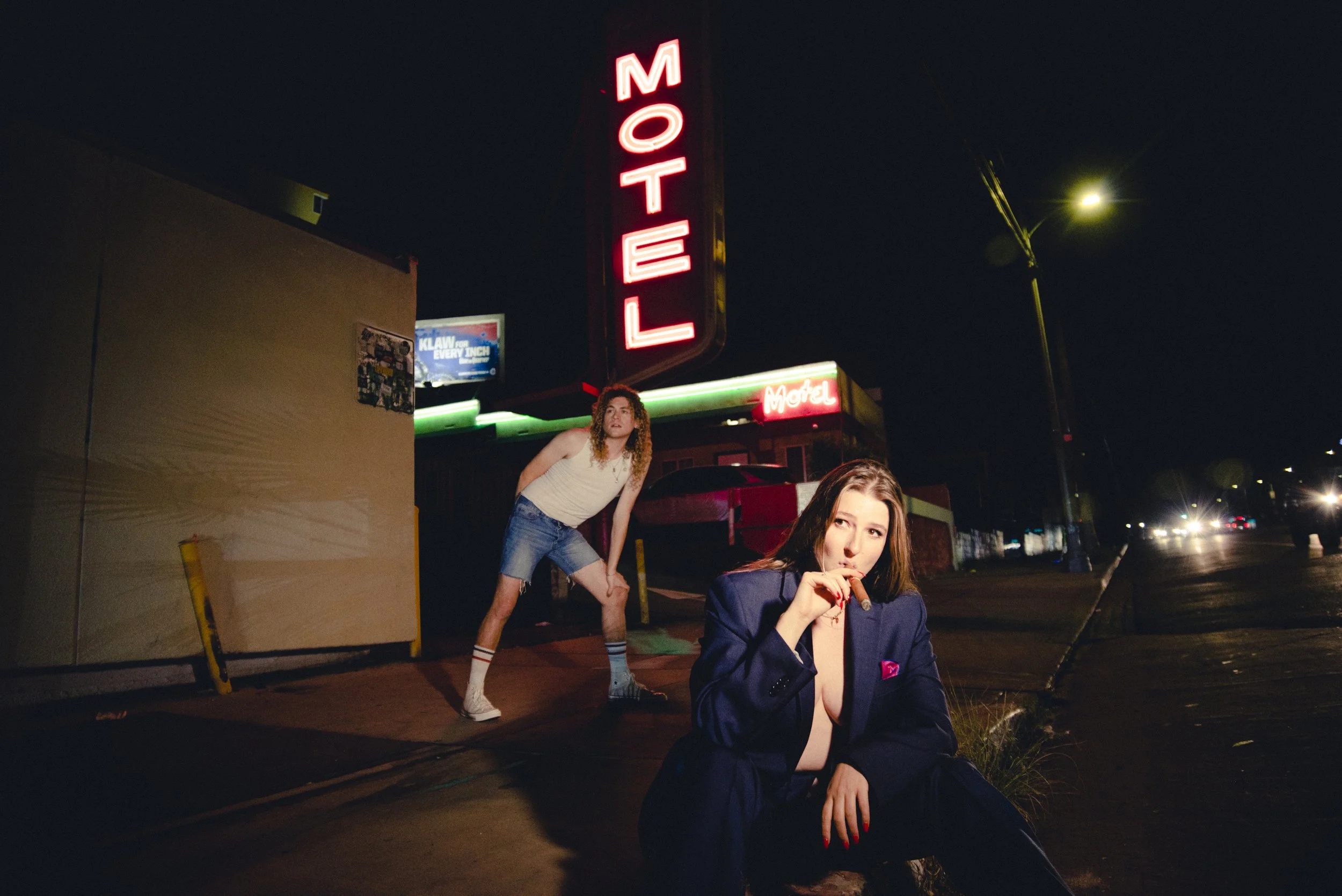
Synopsis:
Desperate to maintain their lifestyles as their youth, & options, fade, two aging sugar babies dive headfirst into the bizarre underworld of the “desire economy.” When a provocative new app called Daddies Boi promises fast cash and fresh connections, the duo is forced to confront what they’re really selling, & what it’s costing them. As the lines between hustle and identity blur, their friendship, self-worth, and survival hang in the balance in this sharply funny, emotionally raw look at aging, agency, & the price of being wanted.
Daddies Boi is a queer dark comedy, which serves as both a short and as a pilot/proof-of-concept. Based on lived experiences in the sex working gig economy of Los Angeles, Daddies Boi follows two aging sugar babies grappling with identity, survival, and friendship in the sex working gig economy.
It’s an emotionally raw- and slightly razzle-dazzle- story about agency, queerness, and connection, with a tone that dances between grit and joy. Illuminating a more nuanced view of sex work, not victimized, but curious, complicated, and ultimately, empowering.
Daddies Boi is loosely based on our real story: Louie and Zoe met in The Theatre School at DePaul University and have been inseparable since. One day, late on rent and low on ideas, the two unexpectedly tested the waters of companionship services at the behest of an old friend who had once tried it herself. What followed was a series of bizarre, tragic, hilarious, and deeply strange encounters, usually involving one of them posing as the others uber driver at the end of whatever date or excursion they found themselves on.
Sex work is often portrayed in a victimized light, but we believe it's time to tell a different story. With Daddies Boi we are embracing the grit and edge of this industry, but also showing the unconventional empowerment of it's protagonists as they dance their way through joy, humility deep friendship, and the roller coaster that it is to live a curious life in the modern age.
By sharing our lived experiences and shedding light on the nuanced realities of sex work, we hope to create a more compassionate and colorful understanding. And by honing in on the friendships that form between people working in these “gray areas”, we hope to highlight the support, understanding, and solidarity that can be found in community.


